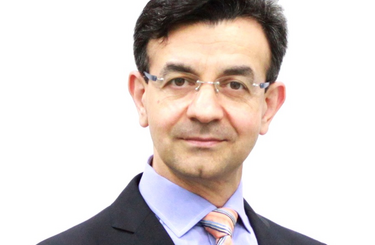
Unlocking competitive potential with efficient leadership
Progress indicator

Lead auditor Rasoul Aivazi examines how the PDSA/PDCA cycle unlocks the competitive potential of an organisation.
Quality management is not an absolute theoretical concept; rather, it is a tangible framework that promises tangible results for organisations willing to commit.
The ISO 9001:2015 Quality management systems – Requirements standard has highlighted the way for organisations, large and small, to optimise their processes and ensure continual improvement.
A vitally important strategy in this domain is the Plan, Do, Study, Act (PDSA) cycle, also often referred to as Plan, Do, Check, Act (PDCA). The former is attributed to Dr W. Edwards Deming, while the latter has its roots in the ISO 9001 standard.
It is noteworthy that using PDCA, rather than PDSA, has persisted, especially in Japan, despite Deming’s significant influence. PDCA was the ‘original’ and is still used by Toyota; however, Deming changed it to Plan, Do, Study, Act (PDSA), as in the USA, as 'check' was sometimes misinterpreted as ticking a box, rather than checking what you have done.
This article delves into the interplay between PDSA/PDCA and leadership, showcasing how integrated leadership principles can drive an organisation’s competitive potential.
Growing yourself
The first step towards excellence for leaders is to grow themselves. In the modern, fast-paced business world, lack of flow, movement and development can spell the end for organisations, so leaders must be at the forefront of the movement of growth.
Before an organisation can hope to gain the potential benefits of ISO 9001, or implement the PDSA/PDCA cycles effectively, its leaders need to be equipped with the right skill set, mindset and knowledge. Personal growth forms the bedrock of effective leadership in quality management.
It is important to note that PDSA/PDCA can be used by anyone, regardless of their role in leadership. This remains true even in situations where an organisation and its leaders may not explicitly or formally endorse a method of improvement; individuals can still independently engage in PDSA.
A key aspect of the A3 Storyboard approach at Toyota is the emphasis on enabling every individual to implement the improvement cycle whenever they identify potential areas for enhancement.
"There is an inherent synergy between the theoretical frameworks of ISO 9001 and PDSA/PDCA. However, the real magic happens when these are coupled with dynamic leadership."
‘Plan’ or planning – the first step in both cycles – is not just about setting goals; it is about vision. Leaders must articulate a vision that resonates with organisational objectives and integrates seamlessly with quality management. Such a vision is not created in isolation, but is the outcome of continuous learning, insights from industry trends, and self-awareness.
Active participation characterises the ‘Do’ phase. It is about more than just delegation. Leaders need to be involved on the frontlines, understanding challenges and participating in the rollout of processes. This not only enhances the effectiveness of implementation, but also boosts team morale.
However, actions without reflection can serve no useful purpose and will be completely ineffective. The PDSA’s ‘Study’ phase, and the similar ‘Check’ phase in PDCA, are not just about reviewing results; they are about self-examination. Leaders must have humility and wisdom to understand what went right and what missed the mark.
This stage involves learning and sharing your ideas with anyone who you think might be affected by the cycle and likely to change their input. The reason this approach works well is that, by the time the improvement is agreed upon and implemented, many people have contributed, so the change does not come as a surprise.
Growing others
Fostering a collaborative culture of excellence is achieved by nurturing every team member, which will, in turn, empower the team. Leaders cannot effect change alone.
The true power and potency of ISO 9001, along with the PDSA/PDCA cycle, only emerges when everyone in the organisation understands and embraces their role and responsibilities, which includes creating a learning organisation.
A collaborative environment is non-negotiable. When team members feel valued, acknowledged and involved, they contribute proactively. Their insights, derived from different touchpoints, can offer a holistic view of the quality management process.
Feedback is the cornerstone of growth. As organisations progress through the ‘Study’ or ‘Check’ phases, leaders have the opportunity to provide constructive feedback. This not only identifies areas of improvement, but also celebrates achievements, ensuring teams feel recognised and motivated.
Finally, the ‘Act’ phase symbolises proactive change management. Leaders must ensure that insights derived from the previous phases are transformed into actionable strategies. Effective communication ensures that these strategies are understood, accepted, and acted upon.
The synergy of theory and practice in quality management
There is an inherent synergy between the theoretical frameworks of ISO 9001 and PDSA/PDCA. However, the real magic happens when these are coupled with dynamic leadership. Then, the cycles become more than just steps – they become a representation of a culture of continual improvement.
Leadership is the bridge between these theoretical frameworks and their practical implementation. When leaders prioritise their growth, commit to the principles of quality management, and foster an environment of collaboration and feedback, the cycles transition from mere steps to an organisational norm and principle.
Conclusion
The journey through quality management, guided by ISO 9001, PDSA/PDCA, can be transformative. Leadership stands at the crossroads of this transformation, channelling the power of these frameworks to drive competitive potential.
The true essence of quality management is realised when leaders grow themselves, cultivate growth in others, and seamlessly integrate the principles of these cycles into the organisational DNA. This synergy promises not just excellence, but also a sustainable path to success in quality management.
Read more from Rasoul Aivazi
Lead auditor Rasoul Aivazi explains how Deming's principles of profound knowledge apply to a conscientious approach to auditing.
Find an auditing course
Search our database of global training partners for a certified auditing training course in a location near you.
Quality World

Get the latest news, interviews and features on quality in our industry leading magazine.
The International Quality Awards 2024
This year's awards span eight categories, celebrating the achievements of exceptional quality professionals and auditors across the globe.


